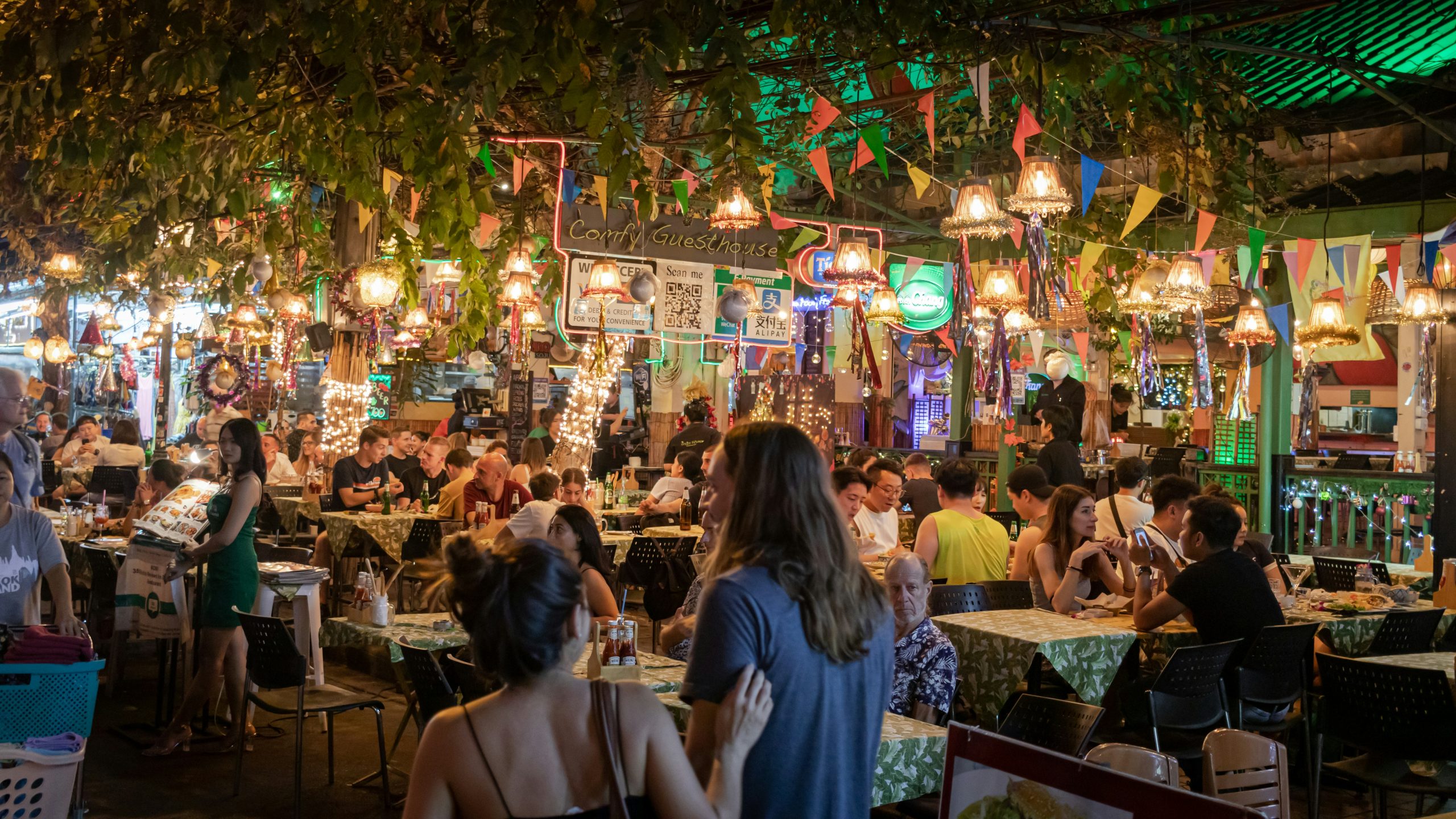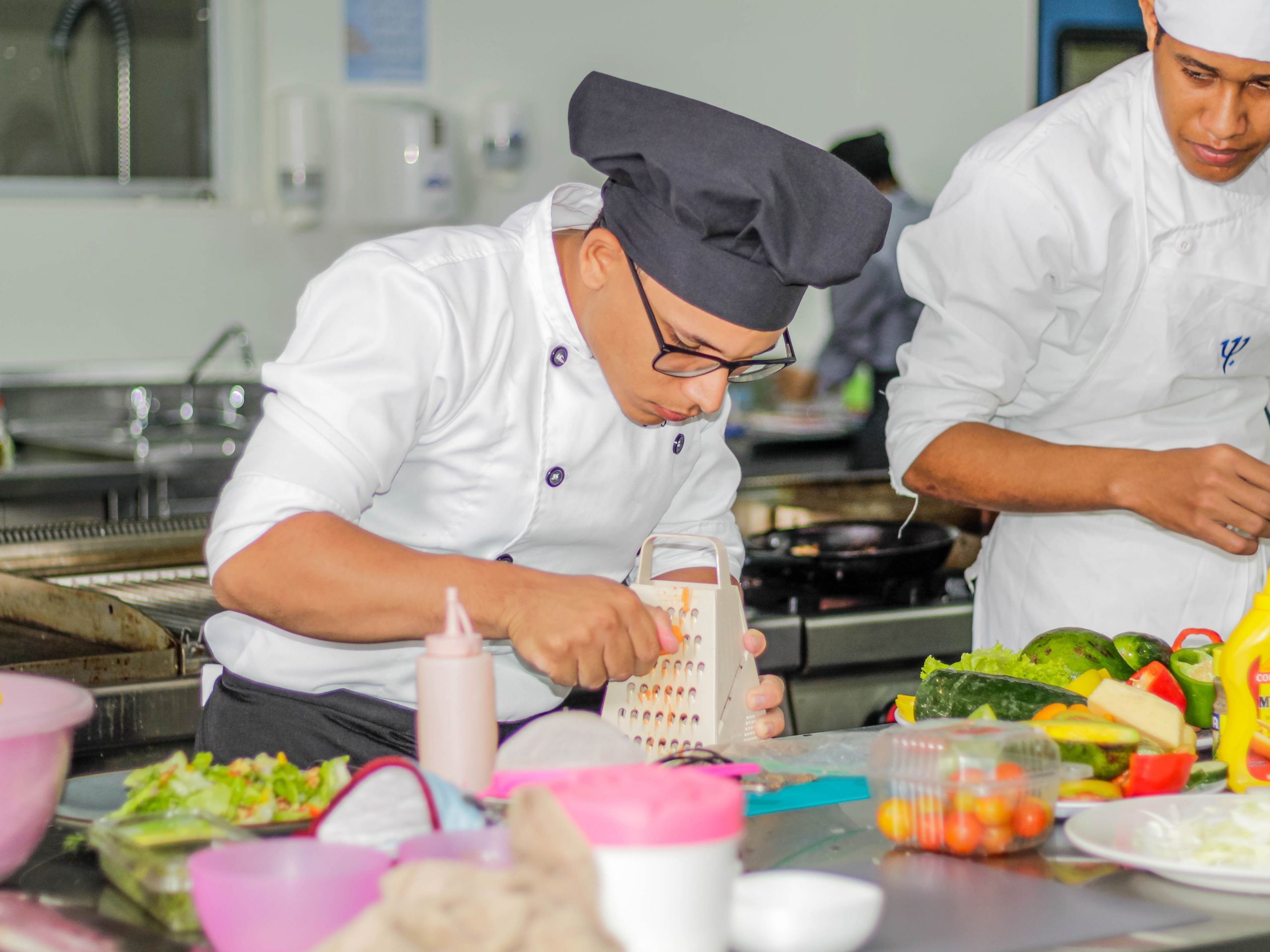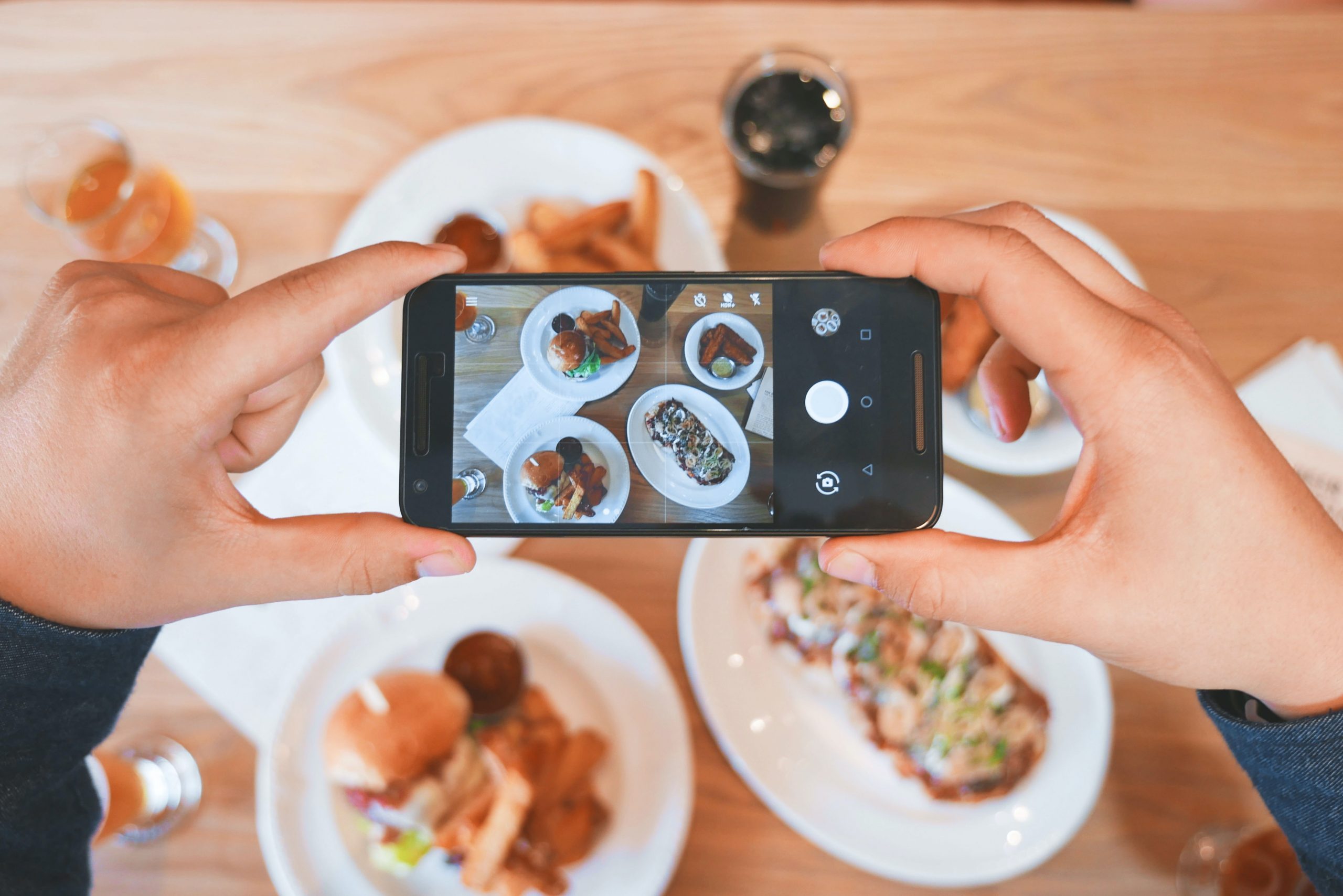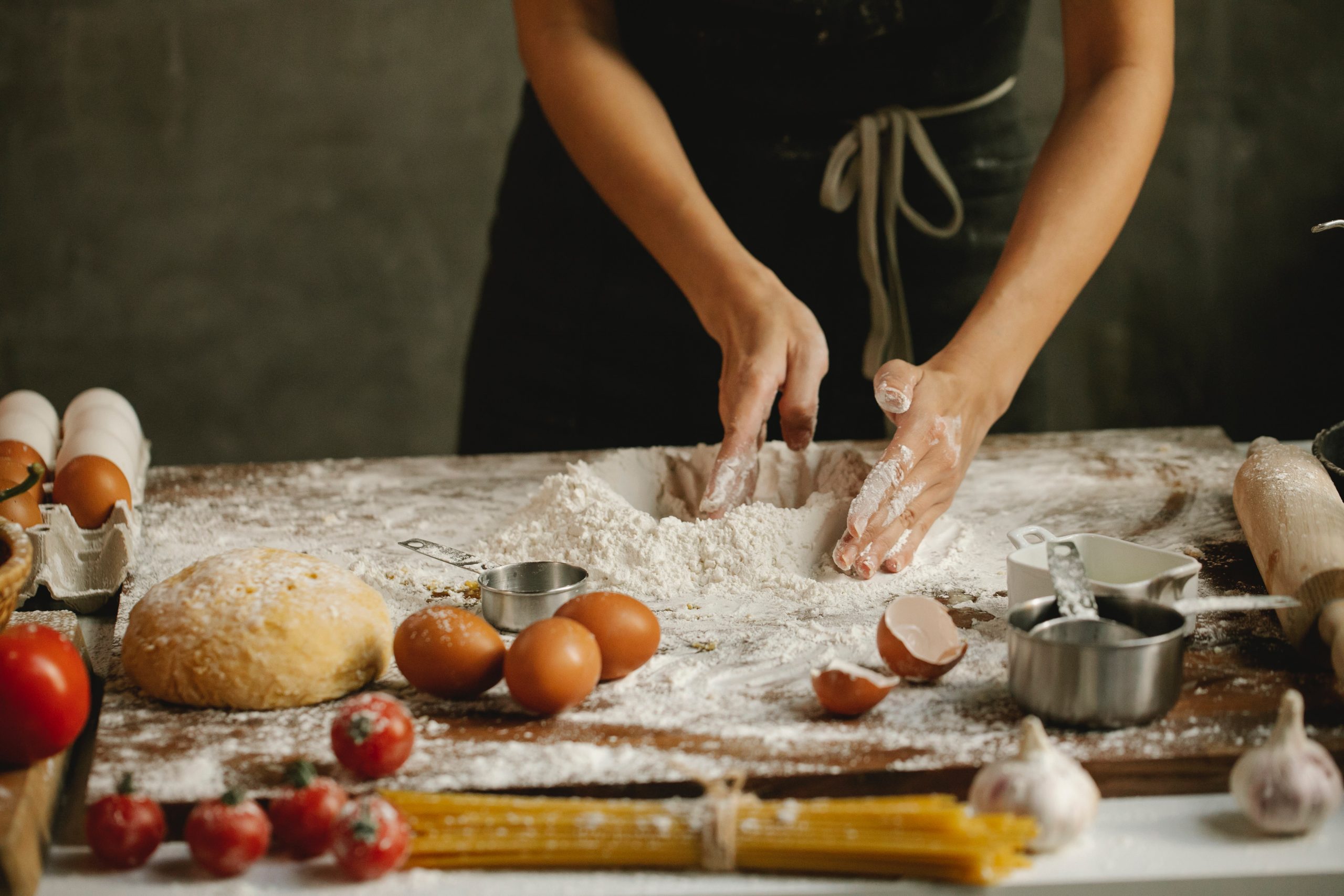Pop-Up Restaurants: Reinventing the Culinary Experience
In every industry, innovation is key to diversifying market offerings and competition, as well as meeting the needs, demands, and expectations of today's consumers. While it is true that the technology industry, with notable examples like Apple, Tesla, Microsoft, and Samsung, is a major player in constant innovation, the service and consumer sector also stands out. In fact, in 2023, this sector ranked fourth in innovation. Today, we explore innovative proposals in the gastronomy sector that satisfy needs beyond the palate. For some time now, proposals have emerged that aim to offer unique and unconventional experiences. This gave rise to the famous "pop-up restaurants," where people can not only enjoy a meal but also engage socially in a temporary and exclusive setting. Although not a new concept, pop-up restaurants have evolved to offer once-in-a-lifetime experiences. Brands are tasked with continually innovating their offerings, and renowned chefs have joined this trend, creating events that are sometimes clandestine and at other times highly exclusive. The essence of pop-up restaurants is to offer a creative and temporary culinary experience. This demand can be summarized into three irresistible pillars for the public: Innovation: The main axis of the entire experience, aiming to offer something unique and
The Fusion of Innovation and Tourism: Inspiring Success Cases
It is no secret that the main pillar for the growth of any business is innovation. In recent years, we have witnessed the rise of artificial intelligence due to its accelerated growth. Innovation and tourism go hand in hand, improving and simultaneously generating new products, services, and experiences to meet new demands. For example, customer service optimization has seen the emergence of chatbots as allies, and mobile applications now optimize time in hotels for bookings, cancellations, or modifications. In this context, I want to share the success story of Zoku, which emerges as one of the rising trends in the hotel industry due to the increase in modern nomads and remote workers seeking flexible and comfortable spaces to stay, work, and socialize. Zoku took advantage of this demand by offering a business model that caters to people who frequently travel for short and long periods and need a place that fits their lifestyle and needs, considering that conventional hotels do not always meet these requirements due to factors like cost and lack of privacy, among others. Zoku addresses this market niche with a new concept of a hotel and coworking space. Designed as lofts, their spaces are spacious and functional, easily transforming
Space Tourism: The New Luxury Experience
Space tourism is emerging as an exciting adventure for those seeking unique and luxurious experiences. While currently only a privileged few can afford the millions of dollars required for these trips, it is expected that over time and with technological advancement, costs will decrease, thus democratizing access to space. Companies like Virgin Galactic, led by Richard Branson, are at the forefront of this field. Their spacecraft, V.S.S. Unity, took a crew to the edge of space in July 2021, offering passengers an unparalleled view for a few minutes. In addition to Virgin Galactic, companies like Blue Origin, founded by Jeff Bezos, are also making significant advances in space tourism. With the New Shepard, a suborbital rocket, Blue Origin is bringing the dream of space closer to reality for the general public. Their ongoing advancements and research are paving the way for expanding access to space, offering new opportunities to explore the cosmos. Space tourism is constantly evolving, promising to open the doors of the cosmos to a wider audience in the future. Although currently the cost of these experiences remains limited to most, technological advances and competition in the sector could eventually make space accessible to everyone. However, beyond the numbers, an intriguing
Gender Equality: Key to an Inclusive Economy
The inclusion of female leadership in the workplace is crucial for promoting gender equality and fostering innovation. Female leaders not only bring a unique perspective but also inspire others to achieve their professional goals, thereby driving economic independence. Despite progress, gender gaps persist in many countries. In Mexico, for example, women's labor participation was only 45% compared to 77% for men in 2022, according to a World Bank report. This underscores the importance of continuing to work towards promoting equal opportunities. Companies that promote the inclusion of women in all areas of work experience various benefits, such as better talent retention, more equitable policies benefiting all employees, and greater diversity in the workforce, which helps prevent gender, racial, and sexual discrimination. Furthermore, these benefits also translate into positive economic aspects for countries, such as an increase in per capita income and greater economic growth. How does this topic remain relevant today? Despite efforts to close gender gaps, there is still much work to be done. The inclusion of female leadership remains a priority for building a fair, equitable, and prosperous workplace for all.
Creative Cooking Diploma 2023
In the dynamic world of gastronomy, I am pleased to announce with great enthusiasm the arrival of the third edition of the Creative Cooking Diploma 2023, a project that goes beyond teaching and becomes a catalyst for opportunities for Dominican youth. This program, born as a vision to empower young enthusiasts of gastronomy, has become a platform to discover and nurture local talent. By supporting this diploma, my goal is to provide these young individuals not only with advanced culinary skills, but also to open doors to a future where their creativity can shine on the world gastronomic stage. The initiative to send the most outstanding student to the prestigious Basque Culinary Center in Spain continues, offering a unique experience that transcends geographical and cultural boundaries. This year, as in previous editions, we seek to highlight innovation, passion, and a commitment to excellence in the kitchen. I hope that this diploma serves as a springboard to new horizons, new connections, and, above all, to the flourishing of Dominican talent on the international stage. By continuing to support initiatives like this, we contribute not only to the individual development of participants but also to the enrichment of the rich Dominican culinary heritage. Welcome to the
Grupo Xcaret Success Story
Tourism is a cornerstone of the Mexican economy, and one of the standout destinations in this industry is the stunning Riviera Maya. In this setting, Grupo Xcaret, a 100% Mexican company and a leader in sustainable tourism, has grown alongside this region for 30 years, developing a portfolio of seven natural parks: Xcaret, Xel-Há, Xenses, Xoximilco, Xavage, Xplor, and Xplor Fuego, along with three tours of archaeological sites and 900 rooms offered at the Hotel Xcaret México. Thanks to this, in 2019, it achieved a remarkable milestone, amassing four million visitors since its inception. In this regard, Xcaret's success is due to a combination of factors, with a focus on sustainability, excellence in customer service, and innovation being among the most prominent. The importance of sustainability: Grupo Xcaret has led the way in sustainability by blending entertainment offerings with environmental conservation. Its natural parks stand as a testament to this commitment, allowing visitors to enjoy the beauty of the Riviera Maya while becoming aware of the importance of protecting it. However, this commitment extends beyond nature preservation; it also encompasses the promotion of Mexico's rich culture. Every experience at a Xcaret park is infused with authenticity and national pride. Visitors can immerse
Why the beverage industry continues to experience sustained growth and the key industry trends
The beverage industry, particularly the alcoholic beverages market, is maintaining steady growth, fueled by a range of factors influencing consumer preferences and emerging trends. In this context, I am pleased to examine why the beverage industry continues to thrive, taking into consideration some of the trends shaping the sector. The market for alcoholic beverages is astonishing in its magnitude. According to Statista data, revenues in the alcoholic beverages market reached an impressive figure of $1,609.00 billion in 2023, and it is projected to experience annual growth of 5.42% until 2027. An interesting highlight from the report is that the largest market segment is that of beer, representing a market volume of $610.00 billion in 2023. Consumer preferences play a pivotal role in this growth. According to data presented in the report, the demand for unique and premium alcoholic beverages is consistently rising globally, with consumers willing to invest more in high-quality products that offer distinctive flavors and experiences. This has led to an increase in the demand for craft beers and artisanal spirits, as well as limited-production wines, demonstrating that consumer palates' sophistication has also boosted the popularity of premium alcoholic beverages. According to the Distilled Spirits Council of the United States, in
How are TikTok Trends Affecting the Eating Habits of the New Generation?
We live in a constantly evolving digital era where social media has transformed the way we communicate, consume content, and yes, even how we eat. Among these platforms, TikTok has stood out as a cultural phenomenon, especially among the younger generation. It's no surprise to announce that TikTok has become one of the most influential social networks. In just two years, it has become one of the social networks with the most active users and recorded a revenue of over $9 billion in 2022 alone. But beyond dance and entertainment videos, TikTok has proven to be fertile ground for exploring the world of food and beverages. According to data from News Room TikTok, 68% of TikTok users have discovered a food or beverage brand by seeing it on the platform, and 46% have purchased a food or beverage product after seeing it on TikTok. Furthermore, 72% of these purchases were unplanned. One of the most notable ways TikTok is affecting eating habits is through viral food trends. Videos featuring clever and delicious recipes can go viral in a matter of hours. The result? Users, mostly young people, feel the need to try these culinary creations for themselves. For example, the "TikTok bread" recipe,
Women entrepreneurship in the gastronomy industry
In the midst of the 21st century, the gastronomy industry remains a battleground where women strive to carve out their place in a world dominated by deeply rooted gender stereotypes. While women are often the queens of the kitchen in our homes, the most prestigious and visible positions in renowned restaurants are predominantly occupied by men. According to data from ONU Women (2020), less than 4% of chefs with three Michelin stars (the highest culinary distinction) are women. This imbalance is undeniable and reflects a reality that, despite social advancements, still persists. María Canabal, a journalist and founder of Parabere Forum, presented an even more revealing perspective at the 2017 Paralelo Norte forum: 93% of those who cook at home are women, 48% of culinary school graduates are women, and 39% of restaurant cooks are women, yet only 18% of women in the industry are chefs, that is, head chefs. This stark gap between women's presence in the kitchen and their representation in leadership positions highlights the challenges faced by women entrepreneurs in this sector. Let's delve into some of the main challenges: - Gender wage gap: women often earn less than men for the same work. - Inequality in task distribution: women still
Plastic Reduction: companies leading the way towards plastic usage reduction
It is no secret that the issue of plastic has become one of the most pressing challenges for our planet today. The massive production and indiscriminate use of plastics have had a devastating impact on our ecosystems, threatening marine life, contaminating water, and affecting our health. However, amidst this concerning reality, there is a ray of hope. In the face of this challenge, many companies have decided to take bold measures to reduce their dependence on plastic and find sustainable alternatives to maintain their business success. Let's take a look at some of these pioneering companies and the solutions they are implementing to address this crisis. Patagonia: Towards a Circular Economy The renowned outdoor clothing brand, Patagonia, has long been a benchmark for sustainability and environmental responsibility. Founded in 1973 by Yvon Chouinard, their focus on a circular economy has been a cornerstone of their strategy to reduce plastic usage. They have implemented a clothing recycling program where customers can return used garments for reuse or recycling into new products. Additionally, the company has significantly reduced plastic packaging for their products and opted for recycled and biodegradable materials whenever possible. Undoubtedly, Patagonia's initiative not only promotes a significant reduction of plastic in their supply










